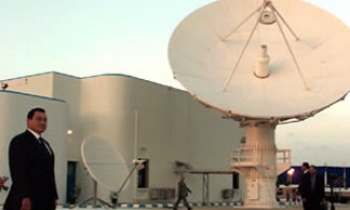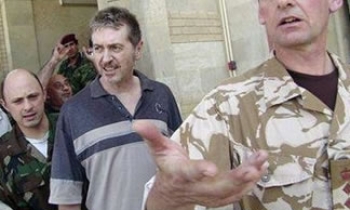BERLIN (Reuters) - Muslim fury over cartoons satirising the Prophet Mohammad in European newspapers provides dangerous ammunition for radical Islamists and could serve as a pretext for violence, security analysts said on Friday.
But they said any such action was more likely for the time being to be directed against individuals than to take the form of full-scale terrorist attacks.
The "low intensity" risk is for further anti-European protests in the Muslim world, said security analyst Claude Moniquet, referring to angry demonstrations in Gaza and the storming of a building housing the Danish embassy in Jakarta.
"The bigger risk is to see ... al Qaeda or another major terrorist organisation getting hold of this affair and using this as a pretext, for example, to kill hostages in Iraq or commit an attack somewhere in Europe. That is not very probable but it's possible," said Moniquet, head of the European Strategic Intelligence and Security Center in Brussels.
Germany, where at least three newspapers have published the cartoons, acknowledged on Friday that the row could complicate attempts to free two German engineers held hostage by a militant group in Iraq.
"It's certainly true -- we saw this yesterday with the disturbances in the Palestinian areas -- that this dispute over the cartoons has an influence on the mood in the Arab countries," Foreign Minister Frank-Walter Steinmeier said.
"We are making every effort to damp that down in the coming days."
The drawings -- first published by a Danish newspaper and later reprinted in France, Germany, Spain and Norway by editors citing the need to defend press freedom -- have provoked an international furore. One shows the Prophet Mohammad wearing a bomb-shaped turban.
"INSPIRATION FOR FANATICS"
Magnus Ranstorp, a security analyst who advises European Union bodies on terrorism, said the explosion of Muslim anger could potentially raise the terrorist threat level in Europe if the crisis was prolonged.
He said Denmark, where the row started, remained at higher risk -- not only in the Middle East, where it has 530 troops in Iraq and is facing regional protests and boycotts of its goods, but also at home.
"The immediate risk would not be a full-scale terrorist explosion in the capital. (But) it certainly increases the threat level against individuals and particularly politicians within the Danish government, and of course the paper itself," Ranstorp said by phone from his home in Copenhagen.
"It may provide inspiration for individual fanatics or small groups of fanatics that may not otherwise have popped up on the radar screen. That makes this issue so difficult for the security services, because it is an issue like this that can, for some, become the tipping point."
Security services across Europe received a wake-up call in 2004 when a home-grown Dutch Muslim radical murdered Theo van Gogh, a director who had made a controversial film about violence against women in Islam.
Moniquet said that from a radical Islamist standpoint, the cartoon affair provided "the same logic" for violence, and served the al Qaeda-driven idea of a fundamental battle between Islam and the West.
The episode "can serve to show Muslims that beyond the war on terrorism there is a war of civilisations, there's no compatibility between democracy and Islam, between Islam and the West, and that is good for them, so indeed I think they'll try quite quickly to seize this opportunity", he said.
Past messages by al Qaeda leader Osama bin Laden have described the Sept. 11 attacks on the United States as revenge for humiliation and disgrace heaped on Muslims, and for the desecration of their religion.
Ranstorp noted a statement this week threatening "bloody war" on Denmark by the Abu Hafs al-Masri Brigades, a group which has made opportunistic attempts in the past to associate itself with al Qaeda and claim links to bombings in Madrid and London.
He said that while the group may not be able to carry out threats by itself, its statements may serve as a cue for other extremists who can.
"When they start issuing directives, everyone gets a little bit extra nervous," he said.









